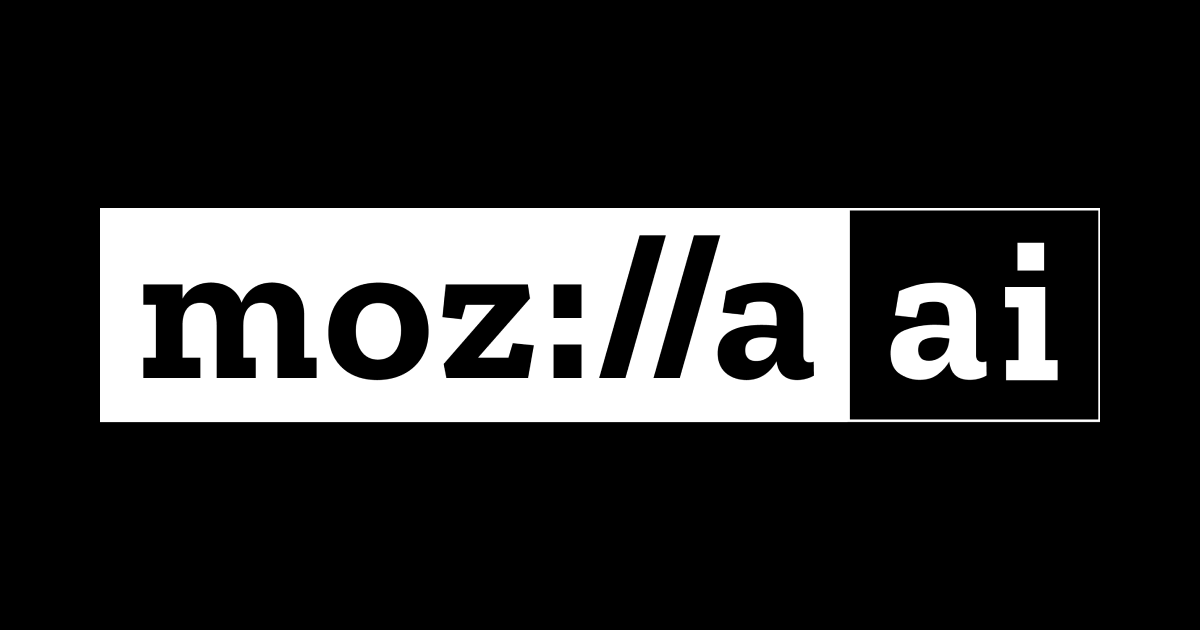My mind immediately went to a horizon zero dawn like dystopia where the Mozilla AI is the only thing left protecting humans from various malevolent AIs bent on consuming the human race
Imagining the Mozilla AI as a personified Firefox and Thunderbird fighting off Cortana, some BARD (sorry) and a bunch of generic evil corporate AIs just makes me excited that Mozilla would be the one fending everyone off.
Incredibly welcomed. We need more ethical, non-profit AI researchers in the sea of corporate for-profit AI companies.
I want to give them the benefit of the doubt. I really do. I am going to watch this with a critical eye, however.
I’ll believe it when I see it.
I’m so goddamn tired of “open source” turning into subscription models restricting use cases because the company wants to appease conservative investors.
That’s basically only OpenAI, maybe some obscure startups as well. Mozzila is far too old and niche to get away with that anyway.
Something that I’ll definitely keep an eye on. Thanks for sharing!

trustworthy how?
Open source
In which ways does this differ from stability ai, which made stable diffusion and also have a LLM afaik?
Couldn’t give a fuck, there’s already far too much bad blood regarding any form of AI for me.
It’s been shoved in my face, phone and computer for some time now. The best AI is one that doesn’t exist. AGI can suck my left nut too, don’t fuckin care.
Give me livable wages or give me death, I care not for anything else at this point.
Edit: I care far more about this for privacy reasons than the benefits provided via the tech.
The fact these models reached “production ready” status so quickly is beyond concerning, I suspect the companies are hoping to harvest as much usable data as possible before being regulated into (best case) oblivion. It really no longer seems that I can learn my way out of this, as I’ve been doing since the beginning, as the technology is advancing too quickly for users, let alone regulators to keep it in check.
Coming from a company the preaches about privacy and rates privacy respecting businesses, while collecting telemetry and accepting 500M/ year to from google to promote their search engine… I’ll take this as the puff up piece that is is.
- The very little, basic telemetry Firefox collects can be easily disabled[1].
- What alternative do you suggest to Mozilla? Reject the $500M and blowup everything they’ve worked so hard for decades to build? I feel like users having to click, at most, a whole 5 times to change their search engine (if they want) isn’t that big of a sacrifice to have a major privacy-oriented, non-profit player in the tech sphere.
Its more so the principle. Many people that download Firefox are doing so to escape google, and if they are not born as cyber security experts they may download Firefox and continue with no real improvement to their privacy.
Secondly, the main thing you should look for is where a company gets its funding. If Mozilla gets almost 100% of its funding through google… How much do you really expect them to push back against the data collection of their userbase?
I rank Mozilla with the likes of ExpressVPN, NordVPN, etc. They preach privacy and security against surveillance… But its just theatre to make money in specific demographics.
It is extremely simple and easy to change your search engine and disable telemetry in Firefox. I would agree if Mozilla showed any favoritism towards Google, but they don’t. Maintaining and developing an entirely independent browser is not cheap.
I really hope you’re not about to suggest Brave as an alternative when 100% of their funds come from a dying crypto scam, is for-profit, and is owned by a far-right, anti-gay reactionary. Not to mention that Brave’s browser is entirely reliant on Chromium code from Google.
Perfect is the enemy of good.
Not only is telemetry easy to disable. In about:telemetry, you can see what’s being send and many of these things are important to improve the user experience, make Firefox faster and also monitor privacy/security problems.
Without telemetry (use counter), how to decide whether a deprecated feature can be removed? Removing them is necessary to decrease maintenance work, be able to innovate and remove features that are less secure.





